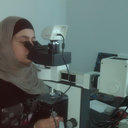Short- and long-term outcomes of kidney donors: a report from Tunisia.
Từ khóa
trừu tượng
Kidney transplantation remains the best treatment option of end-stage renal disease. Kidney donations are of particular interest with the currently increasing practice of living-donor transplantation. The purpose of this study was to analyze retrospectively the general health status as well as renal and cardiovascular consequences of living-related kidney donation. A total of 549 living-related kidney donors had donated their kidneys between 1986 and 2007. We attempted to contact all donors to determine short- and long-term outcome following kidney donation. All kidney donors who responded underwent detailed clinical and biochemical evaluation. The data were compared with age-matched health tables of the Tunisian general population. In all, 284 donors (52%) had a complete evaluation. They included 117 men and 167 women with a mean age of 42 ± 12 years. The major peri-operative complications that occurred in these donors included four cases of pneumothorax, six cases of surgical site infection, one case of phlebitis and one case of pulmonary embolism. None of the study cases died. The median length of hospital stay after donor nephrectomy was 6.5 days (range: 3-28 days). The median follow-up period was eight years. The mean creatinine clearance after donation was 90.4 ± 25 mL/min in men and 81.5 ± 27.2 mL/min in women. Proteinuria was >300 mg/24 h in 17 cases (5.9%). Fifty-eight (20.4%) donors became hypertensive and 19.6% of the men and 37.2% of the women became obese. Diabetes mellitus developed in 24 (8.4%), and was more common in patients who had significant weight gain. Our study suggests that kidney donors have minimal adverse effects on overall health status. Regular follow-up identifies at-risk populations and potentially modifiable factors. Creation of a national registry of living donors and their monitoring are an absolute necessity.



